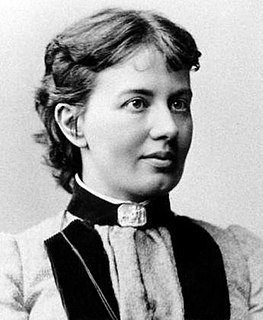A Quote by George Berkeley
But, say you, surely there is nothing easier than for me to imagine trees, for instance, in a park [. . .] and nobody by to perceive them. [...] The objects of sense exist only when they are perceived; the trees therefore are in the garden [. . .] no longer than while there is somebody by to perceive them.
Related Quotes
We all travel the milky way together, trees and men; but it never occurred to me until this storm-day, while swinging in the wind, that trees are travelers in the ordinary sense. They make many journeys, not extensive ones, it is true; but our own little journeys, away and back again, are only little more than tree-wavings - many of them not so much.
I've never found anything to be lacking in a blurry canvas. Quite the contrary: you can see many more things in it than in a sharply focused image. A landscape painted with exactness forces you to see a determined number of clearly differentiated trees, while in a blurry canvas you can perceive as many trees as you want. The painting is more open.
Everything we think we know is really only perceived by our senses,' he explains patiently. 'The sounds we hear are just waves in the air; colors are electromagnetic radiation; your sense of taste comes from molecules that match a specific area on your tongue. Hey, if our eyes could access the infrared part of the light spectrum, the sky would be green and trees would be red. Some animals see in completely different ways, so who knows what colors look like to them. Nothing is really how we perceive it.
As the three of them walked home from the trees, nobody needed to say it, but Ama knew. They had questioned their friendship. They had searched and wondered, looking for a sign. And all along they'd had their trees. You couldn't wear them. You couldn't pass them around. They offered no fashion advantage. But they had roots. They lived.
Our initial sensory data are always "first derivatives," statements about differences which exist among external objects or statements about changes which occur either in them or in our relationship to them. Objects and circumstances which remain absolutely constant relative to the observer, unchanged either by his own movement or by external events, are in general difficult and perhaps always impossible to perceive. What we perceive easily is difference and change and difference is a relationship.
For instance," said the boy again, "if Christmas trees were people and people were Christmas trees, we'd all be chopped down, put up in the living room, and covered in tinsel, while the trees opened our presents." "What does that have to do with it?" asked Milo. "Nothing at all," he answered, "but it's an interesting possibility, don't you think?
Those who tell you that man is unable to perceive a reality undistorted by his senses, mean that they are unwilling to perceive a reality undistorted by their feelings. "Things as they are" are things as perceived by your mind; divorce them from reason and they become "things as perceived by your wishes.









































